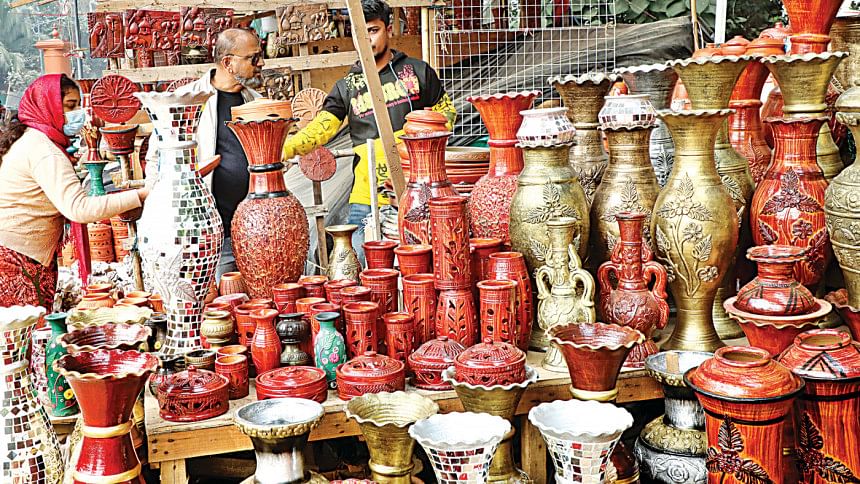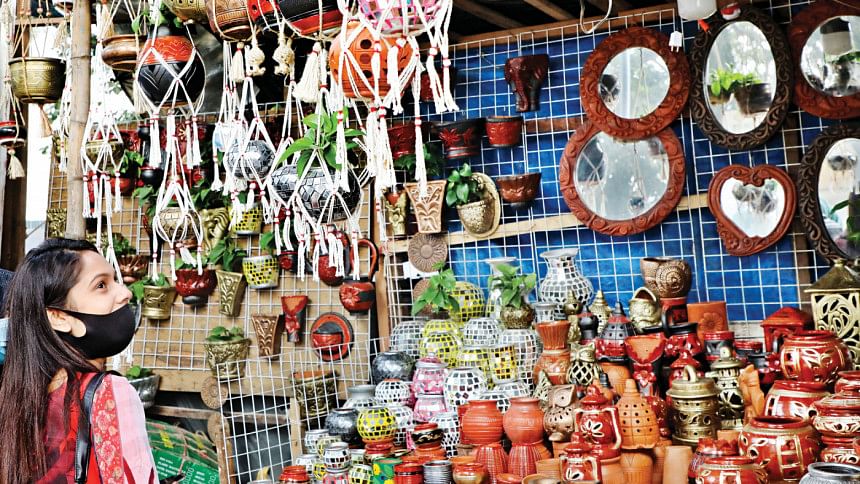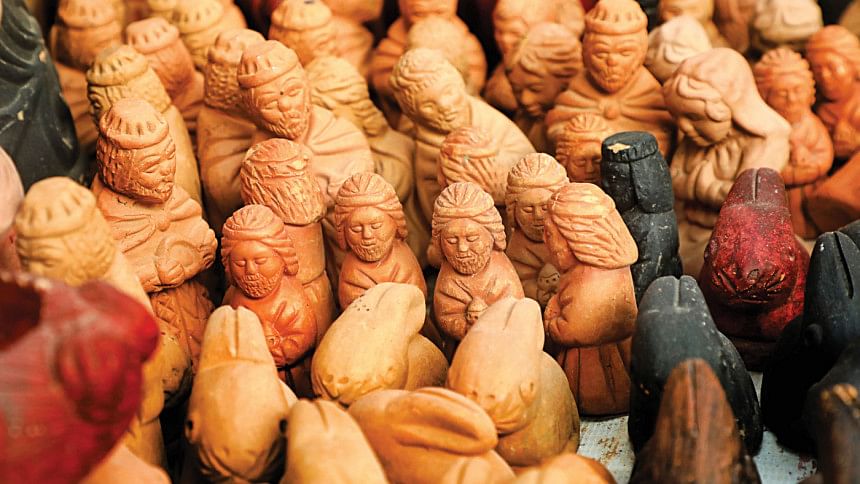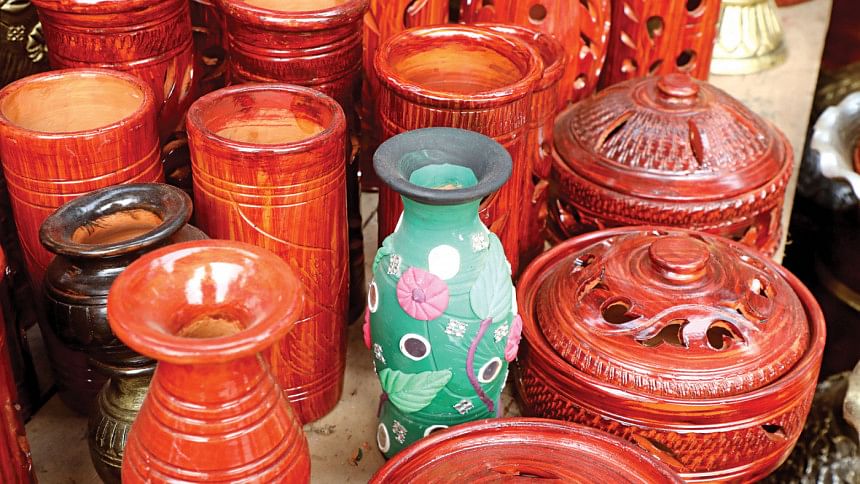Unraveling stories behind an iconic footpath

The long strip of pavement from Tin Netar Mazar near Doyel Chattar to the High Court Mazar, by the east gate of the old court premises, has always been a hotspot.
Mystery surrounds the identity of the saint lying in the tomb; nevertheless, devotees and dervishes made the place an akhra -- a religious house for Sufi ascetics who renounced their worldly possessions and dedicated lives to the worship of God.
As is the case near any Sufi shrine, a flower market took form as followers wished to place garlands, wreaths, and flower petals as offerings. Since the 70s, this large flower market has been set up under the canopy of trees lining the place.
However, as years went by, Dhaka began to evolve and so did this pavement. In recent years, the pavement, which was once famous solely for its terracotta and pottery shacks, transpired into a nursery haven situated on both sides of the streets. At this point in time, novelty items like ornaments and household décor make rare appearances.

Pottery found in bigger stores began making appearances on this footpath, at discounted prices. Flowers pots in the shapes of elephants, swans, and frogs, with intricate coloured alpana or folk-art motifs, also found a big fan following here. Handcrafted terracotta pots in intricate details of garland and leaves, along with other traditional designs, minus any paint coat, are also on offer.
At these street-side shops, small sculptures, wall hangings, effigies of famous persons, animal figures, vases, ashtrays, candle stands, and pen stands are popular items, with wooden lamps of contemporary design being the most recent addition.

The stores, right at the start of the footpath near Shishu Academy, also sell showpieces made of wood, bamboo, jute, cane, and ceramic. Here, you will find mementoes of the city like miniature rickshaws and rickshaws-art, and colourful black and yellow baby taxis. The price of products varies from Tk 30-500 or more, depending on the intricacy of design and size.
Most of the pottery products come from Barishal, Cumilla, Faridpur and places surrounding Dhaka -- including Dhamrai, Savar, and Nabinagar. Jute and wooden items, on the other hand, come from Bogura, Narsingdi, Rangpur, and Kaliakoir.

These days, apart from random customers, the major business of this place comes from event planners. The vendors here are one of the main suppliers of decorative items needed for wedding ceremonies, gaye halud events, office decoration, and various stage shows. Festivals like Pahela Baishakh, Pahela Falgun, and Valentine's Day are times when these footpaths see a lot of sales.
This colourful market has been around since the early years of Bangladesh and has slowly evolved into a sought-after place for souvenirs and other folk artefacts. It attracts Dhakaites and tourists with equal zeal. Undoubtedly, it is the best place in Dhaka to shop for souvenirs that encapsulate the core of the city.

 For all latest news, follow The Daily Star's Google News channel.
For all latest news, follow The Daily Star's Google News channel. 



Comments